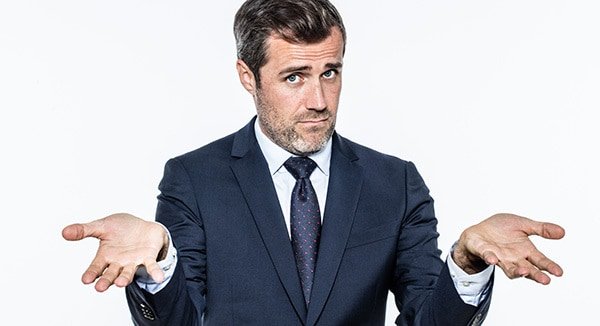EAPA San Fernando Valley

|
|
|
|
|

|
|
|
|
|

When you find yourself with an addiction or alcoholism, do you move away or do you change in real life? External remedies are often sought to solve internal matters. Eventually, change has to happen in real life in real time.
A safe and comfortable retreat where all needs are met sounds like a great idea and some can actually afford such luxuries. Most of us find that engaging in recovery happens best during life’s activities and challenges. Recovery skills can only become effective when they are practiced with common day problems in real life.
A brief respite may help but long-term avoidance creates new problems. Avoiding work difficulties, conflicts with others, financial challenges, and craving triggers postpone the practice of recovery. Recovery only occurs when we face our skeptical coworkers and boss, become honest with our resentful spouse and children, set out a payment plan for the accumulating bills and debts, and when we walk past the bar or a using buddy on our way to a meeting.
Families with addicted loved ones often want to send them out for repair. A new changed person is expected after a couple of months in residential treatment or rehab. We hope that whatever happens behind those walls “takes” and magically changes years of well-practiced drug seeking and chasing the high.
Addiction is a shortcut to pleasure and relief from discomfort and pain. The immediate result of ingesting a chemical replaces the social and occupational activities normal people employ to take care of themselves. We lose our social, occupational and personal management skills.
What is learned in comfortable and safe surroundings need real-world practice to become useful. Eventually, we as recovering people eventually need to face our own capacity for choice. We cannot continue to be monitored and contained in an observed treatment center forever.
Recovering alcoholics and addicts label moving to avoid problems, “taking a geographic”. It is avoidance of responsibility and magical thinking. The problem remains through space.
Wherever you go, you eventually find yourself… you take your problems wherever you go. Treatment and rehab should not be another “geographic” escape from the problems and the consequences of a life that has become unmanageable. Facing the wreckage, triggers, and problem behavior at home is required if a solution is to be found.
Recovery starts with avoiding the first drink or drug… abstaining from addictive substances one day at a time. That beginning may be inside a safe and supportive rehab or treatment center, or the beginning could be at home with the direction, instruction and support of an intensive outpatient program. The practices of recovery must be established at home in the long term… postponing may feel comfortable but avoidance becomes its own bad habit.
Intensive outpatient drug and alcohol treatment provides an “at home” process of learning, understanding, becoming increasingly aware, practicing new skills, and monitoring personal ideas, feelings and behaviors. In intensive outpatient treatment, people discover at home, with loved ones and at work, with coworker a new way of acting. An openness to learn and understand new ideas, and to practice new behaviors and skills is developed naturally, where it is needed the most. An outpatient support group and professional helps find new ways of facing triggers, people, places and things which were once part of the addictive lifestyle.
New friends and acquaintances who understand and support sobriety are gained, and can be maintained over the long-term in outpatient treatment. Leaving outpatient treatment or rehab doesn’t mean losing all the supportive relationships and practices that may be fragmented when leaving a residential program.
Intensive outpatient treatment can be as or more effective than residential treatment as demonstrated by research. It is also much more affordable and accessible, especially if insurance coverage is to cover the costs of treatment.
Twin Town Treatment Centers is immediately accessible to all Los Angeles and Orange County residents, is accredited by The Joint Commission, and is certified by the California DHCS. All network HMO/PPO/EPO insurance plans contract with Twin Town Treatment Centers to provide drug and alcohol rehabilitation. Our phone is answered by real people. We can see people on the same day you call. (866) 594-8844

For Christmas, I want to be freed from my wants.
Rather than fantasizing about and striving for things and events which bring pleasure and relieve discomfort, in recovery we act to give, rather than to receive. Our motives shift from feeding an appetite toward higher purposes and being one with others.
Recovery grants fulfillment, not by giving you all of the things you want, but by diminishing your unreasonable drives and appetites.
Addiction firmly establishes a physical, emotional and mental attachment to people, places and things. Finding and maintaining the object of our desire becomes a demand- we are slaves to our own hungers and habits. Our focus and activity narrow to accessing a few sources of satisfaction.
We abandon many of the people and activities which once broadened our experience and interests. As variety in life shrinks, our need for satisfaction from a few things grows.
How do my wants change in sobriety?
Attempting to satisfy our hunger for satisfaction and relief from discomfort, we use faulty solutions even harder. Our actions briefly satisfy a hunger that grows stronger as it is fed. We feed the wolf that harms, rather than the wolf that serves us and our loved-ones.
If we are fortunate, we find a moment to abandon this pattern of feeding the raging fire and turn to better direction and purpose. At this point of change, we feel a great deal of anxiety and craving. Support and connection with others help us during this shift. Slowly we become grateful for supportive others and for the opportunity to change.
Eventually the freedom to choose and to change creates new found peace and satisfaction. Our primary sense of purpose and meaning changes from self-satisfaction to generosity and integrity.
How can I relieve discomfort or achieve pleasure? What will satisfy my needs?
Treatment for addiction help to reconsider our motives and objects of desire. We try new behaviors which strive for longer term goals rather than immediate satisfaction. Tolerating hunger is assisted by sharing with, helping, and connecting with others.
Recovery is the process detaching from things which own and control you. Changing the ideas and behaviors which create dependency on people, places and things allow us to discover the qualities of freedom and choice.
Connection to others and higher principals replace alcohol and drugs.
“Attachment” or dependency on things such as drugs and alcohol can be replaced by connection to others, gratitude and generosity.
When you find yourself stuck in the snow, it’s easy to spin your wheels harder. Deeper in the rut you find yourself. Treatment for addiction gives you the tug to move ahead and build momentum to get away from your traps. Detaching from those things that are controlling you needs to be replaced by recovery sustaining practices.
Treatment for addiction and recovery boosts you out of your ruts and sets you on a path away from dependency and toward freedom and choice.
Twin Town Treatment Centers is immediately accessible to all Los Angeles and Orange County residents, is accredited by The Joint Commission, and is certified by the California DHCS. All network HMO/PPO/EPO insurance plans and Medi-Cal contract with Twin Town Treatment Centers to provide drug and alcohol rehabilitation. Our phone is answered by real people. We see people on the same they you call. (866) 594-8844`

Is it ethically necessary for providers to inform the consumer and/or payer that medically and/or financially unnecessary levels of SUD treatment/ rehabilitation are optional or at best, elective?
Looking through the ASAM Criteria for Addictive, Substance-Related and Co-Occurring Conditions (SUD) levels of care, it is impossible to find equine therapy, yoga, psychoanalysis, five-star dining, massage or oceanfront views. Similarly absent are justifications for expensive and extended residential/ transitional housing beyond measured continued stay criteria.
Unnecessary deluxe accommodations, accoutrements, attractions, and “innovative” treatment practices are absent from healthcare indices and criteria. In such settings, seeking sobriety can become confused with a luxurious and pampering vacation. Egos are inflated rather than right-sized.
“Community standard pricing” is a ludicrous concept which no one comprehends when reviewing the extraordinary reimbursement some programs demand. Many times, the demand for unseemly dollars comes without prior notice or consent. “We’ll accept your insurance and whatever they don’t pay, we’ll give you a liberal payment plan.” What is unsaid is that the insurance will cover ten thousand of your sixty-thousand-dollar bill.
Purveyors of treatment services to the “high earning class” do so with high regard for themselves and their peers regardless of the worth such services provide to the community at large.
Consider the despair and disappointment of a father who spoke of losing forty thousand dollars to a rehab which refused to refund his “deposit” after his bipolar son decompensated and ran at day three from the out-of-state residential program. His son only encountered danger and no benefit from his brief three-day stay. The treatment program justified their no-refund policy and packaged prepaid “deposit” as a disincentive for early discharges…
The son was fortunate enough to be arrested rather than becoming lost in the urban jungle many young adults encounter when their out-of-state residential treatment program exhausts their insurance coverage and boots them to the street.
What are the ethical boundaries in the SUD residential treatment market? Do the parameters of informed consent include medical and financial necessity? Should patients and their families be informed that the expense, the level of care, and the forms of services provided are unnecessary or at best “elective”?
The shame surrounding drug addiction and alcoholism commonly create an atmosphere of secrecy for everyone involved. Families would prefer not to seek professional guidance; prospective patients avoid the terms of treatment altogether. Entrepreneurial providers can leverage this secrecy and shame to their financial benefit.
Shame indeed.
As any entrepreneur, treatment providers find innumerable ways to sell luxurious and unnecessary treatment venues and remedies. Sometimes the buyer has no capacity to measure or judge alternatives. Is it the providers responsibility to coordinate and procure informed consent?
Opposite from the entrepreneur on the addiction healthcare pendulum is an insurance industry which often pretends that weekly outpatient sessions with a psychotherapist should resolve but for the most severe substance use disorders.
Missing from this scene is regulatory agency oversight and professional standards.
Watching this process are families, prospective patients and patients who need someone trustworthy to help them engage in recovery. The tragedy of “elective ethics” and alternative standards is that vulnerable people are being harmed by those who could otherwise help.
Twin Town Treatment Centers is immediately accessible to all Los Angeles and Orange County residents, is accredited by The Joint Commission, and is certified by the California DHCS. All network HMO/PPO/EPO insurance plans and Medi-Cal contract with Twin Town Treatment Centers to provide drug and alcohol rehabilitation. Our phone is answered by real people. We see people on the same day they call. (866) 594-8844
To protect your feet, is it easier to wear shoes or to cover the earth in leather?
Alcoholics and addicts need relief from pain and pleasure. Without assistance, their brains don’t seem to sense relief and pleasure easily. Drinking and drug use has been their solution for discomfort and the pursuit of pleasure.
Recovery is an “inside job”. It is impossible to arrange people, places and things to promote serenity, find relief from discomfort, and pursue pleasure. Sober people instead change the way they think and behave to create a world that promotes their personal recovery.
“Why do people get sober?” and “how do they stay in recovery”?
Recovery is refuge from the chaos and consequences of alcohol and drug use gone wrong. Common problems of alcohol and drug abuse include:
Rather than relying on external motivators such as the demands made by work, home, and the law, recovery is based on pursuing a better life, seeking quality and purpose, and behaving according to higher principals.
Twin Town Treatment Centers is immediately accessible to all Los Angeles and Orange County residents, is accredited by The Joint Commission, and is certified by the California DHCS. All network HMO/PPO/EPO insurance plans and Medi-Cal contract with Twin Town Treatment Centers to provide drug and alcohol rehabilitation. Our phone is answered by real people. We see people on the same they you call. (866) 594-8844

You are owned by your attachments and controlled by your needs.
For what are you attached… approval, financial gain, prestige, power, possession, security, relief from discomfort, gratification, pleasure? Perhaps the means to maintaining these attachments create conflict or distress between you and others. Solutions which return you to your attachments could be illegal or unethical. Your route to connecting to your perceived needs could be harmful or even fatal.
Addiction is a harmful and potentially fatal solution for maintaining constant gratification, relief from discomfort and/or pleasure. Your connection to these perceived needs is what maintains the course of your addiction.
I can’t imagine life without constant gratification, relief from discomfort or pleasure. Without them, life wouldn’t be worth living.
The ideas surrounding what you need, what you own and how you maintain these connections are often exaggerated or all-or-nothing. Treatment for addiction evaluates these thought patterns as well as the behaviors practiced maintaining connection and addiction.
Recovery is the process detaching from things which own and control you, changing the ideas and behaviors which are harmful or threatening, and discovering the qualities of freedom and choice.
Connection to others and higher principals is another benefit of recovery.
At what point does an attachment, its practices and solutions require a personal “overhaul” rather than a simple change in behavior or habit?
When we find ourselves stuck in the same rut despite attempts at changing, we probably need to get help and go deeper. Treatment for addiction helps you understand that you’re not alone, demonstrates that alternative ideas and behaviors exist, and most significantly supports your process of detaching from those things that are controlling you.
Needs change. Treatment for addiction and recovery helps you revise your ideas about what you need. You become increasingly capable of selecting those things which have control over you.
Can you change your ideas and behaviors but continue your attachments to people, places, things and sensations?
For a while. Dissatisfaction and frustration is likely to reemerge since people, places, things and sensations are rarely constant and can sometimes prove to be unreliable.
What is the difference between attachment and connection?
Connections support your progress and development where attachments tend to control and constrain growth.
Twin Town Treatment Centers is immediately accessible to all Los Angeles and Orange County residents, is accredited by The Joint Commission, and is certified by the California DHCS. All network HMO/PPO/EPO insurance plans and Medi-Cal contract with Twin Town Treatment Centers to provide drug and alcohol rehabilitation. Our phone is answered by real people. We see people on the same they you call. (866) 594-8844`
Though some in recovery might practice “old behavior” for a while, patterns and consequences of the past return until they find their capacity to change. Those who help others recover can forget that they too are vulnerable to the complexities and subtleties of this disease. The media is full of practitioners of recovery caught in contradictory behavior. The pursuit of pleasure and relief of discomfort may have come in the form of money, power, property, prestige or sex, temporarily substituting for the drink and drug.
The means to recover from alcoholism and addiction may be varied; the capacity to change needs consistency. Any time we place a person, place or object over our overriding desire for and ability to change, we become entangled and bound. What we want is freedom from discomfort and pain, and the experience of pleasure. When we use others to get “our fix” of money, power, property, prestige or sex, this is “old behavior”. Rather than using drugs or alcohol, we use people, places and things.
To break the habits and patterns of alcoholism and addiction, people talk a lot about “recovery”. What is “recovery” if not “change”? Rather being stuck in old behavior, we begin to choose new directions and routes to pleasure and relief. We become concerned in longer term goals and solutions, and we care about others. Recovery includes the ability to change attitude, direction, behavior, perception, habits, goals, motivators, etc. In recovery, we not only change in the moment, but we build “resilience”- a capacity to change over time.
The irony about choice and change is that it usually comes from “willingness” rather than “willfulness”. Change is acquired and learned. If we could access and then manage what we need and desire, change may be less urgent. A problem with alcoholism and addiction stems from the inability to manage and control the object of desire. Sober solutions need to be learned and the alcoholic addict needs to become teachable.
When the student is ready, the teacher will appear. Readiness for change can be described and aided. To encourage change, the teacher or counselor must be trustworthy, respectful and must collaborate with the person needing help. A teacher or counselor’s coercive, disrespectful or deceptive behavior will obstruct change.
It’s now time for change and recovery.
Twin Town Treatment Centers is immediately accessible to all Los Angeles and Orange County residents, is accredited by The Joint Commission, and is certified by the California DHCS. All network HMO/PPO/EPO insurance plans and Medi-Cal contract with Twin Town Treatment Centers to provide drug and alcohol rehabilitation. Our phone is answered by real people. We see people on the same they you call. (866) 594-8844

There exist many reasons why some people think that drug rehab requires travel, time away from home, at a significant financial burden.
Most reasons involve money for the residential rehab and a belief in geographic cures.
Much more revenue is created in the drug rehab industry when twenty-four-hour room, board and care are provided whether they are medically indicated or not. If you were to look for published evidence that a substance use disorder requires lengthy inpatient stays to create positive outcomes, you would need to overlook the body of research which sites favorable outcomes for outpatient treatment over the costly residential option.
Desperate families are vulnerable to telephone call-center tactics playing on their worst fears and desires for a cure. If the solution takes the problem elsewhere, that is even better. “Return my family member when they are fixed …”
No matter where I travel, there I am. The problem seems to follow me.
Leaving the chaos and wreckage created through addiction temporarily diminishes their impact… things seem better for a while. Then the wreckage catches up. Finally, you turn around and face it.
Outpatient treatment provides sober support and professional guidance while you face the wreckage of alcoholism and addiction- a time it’s most needed. Problems often pile higher, especially financial obligations, while away at a residential treatment center. Returning is more difficult and treatment support is often left behind. Relapse upon returning home after residential treatment is not uncommon.
Managing alcoholism and addiction… “taking a trip, not taking a trip” … “checking into health farms and sanitariums”.
Attempts at minimizing the impact of alcoholism and addiction are as old as mankind. Whether attempting to manage alcohol and drug intake or traveling across county “for the cure”, we often use unwise and sometime desperate measures to resolve addictive behaviors and consequences… which must eventually be resolved at home, with loved ones.
Have you ever taken a call from frightened small-town, youth stuck in Orange County or Los Angeles after being booted from a drug rehab, alcohol treatment center or residential treatment?
Where ever these kids find themselves stranded… Sherman Oaks, Hollywood, Torrance, Long Beach, Anaheim or Laguna Beach are scary places to find yourself deserted, especially if you’re from Small Town America.
If the residential treatment center doesn’t get paid, if the insurance company finds inadequate medical necessity to pay for residential treatment, or if the kid fowls up and gets booted, these kids find themselves on the street in unfamiliar and dangerous territory.
Outpatient treatment is effective, covered by MediCal and HMO insurance, and helps integrate recovery organically at home.
For people returning home from residential treatment, alcohol treatment center or drug rehab, outpatient treatment aids with translating their inpatient gains into real life. The support of the outpatient treatment staff and peer group provide an initial support network to face alcoholic/ addict wreckage, damaged relationships and challenges of making a living sober.
Twin Town Treatment Centers is immediately accessible to all Los Angeles and Orange County residents, is accredited by The Joint Commission, and is certified by the California DHCS. All network HMO/PPO/EPO insurance plans and Medi-Cal contract with Twin Town Treatment Centers to provide drug and alcohol rehabilitation. Our phone is answered by real people. We see people on the same they you call. (866) 594-8844

Why is trusting addiction treatment providers a concern?
The practice of business and personal ethics is essential when providing treatment for addiction. When patients become commodities to be traded and paid for on the open market like cattle at an auction, how far does that message permeate the entire treatment milieu? When a referral sources/ interventionists are given exorbitant gifts or are secretly paid extraordinary fees for presentations, consultations or the like, how far away from the cattle auction have you strayed?
What is required to establish trust?
Treatment should be based on the elemental principal of effective therapy: TRUST. Building trust requires that our actions are consistently trustworthy. Respecting the people who ask us for help includes recommending services which are accessible, affordable and appropriate to their needs. Call centers and referral fees diminish patient identity and places patient need below financial incentive.
How do you find a trustworthy addiction treatment program?
In-network treatment providers are held accountable to Joint Commission standards and insurance contractual conditions. “Out-of-network” providers are not accountable for unnecessary or costly charges. How many times have we heard about a family being misled about the costs of treatment after the provider of treatment posted that they accept insurance? What the provider accepted was out-of-network revenues which are much less than the cost of treatment. The patient ends up paying a significantly higher bill having been led to believe that the insurance company should have covered more.
What should you expect in writing to establish a sense of trust?
Pre-admission informed consent provides patients and their families the costs, the benefits and the risks of engaging in a treatment program. Building trust from honest and transparent conversations, Twin Town staff inform treatment candidates about what they can expect. These realistic expectations become the basis from which a therapeutic relationship can develop. If patients and their families are misled or feel defrauded, no relationship is possible.
What can happen when a treatment provider is found not to be trustworthy?
How many families receive bad news twice when their loved one checks out of treatment early, and when the provider refused refund the unused portion of what was paid toward that treatment?
If a laboratory invites you to share in the proceeds for medically unnecessary and absurdly priced urinalysis testing schemes, do you excuse insurance abuse as “scholarships” for charity or “investments” of a business nature? How long will access to out-of-network PPO benefits survive under this type of abuse? Have you earned the trust of the patient, their family and the purchaser of care?
How does the addiction treatment program benefit by maintaining trustworthy standards?
Doing the right thing is not easy but it is what sobriety, recovery AND TREATMENT should be all about.
Twin Town encourages all providers to set and publish ethical standards on their website. Setting ethical standards helps establish public expectations while distinguishing the responsible provider from fraud.
What distinguishes trustworthy addiction treatment from those which are not trustworthy:
What guides the standards of trustworthy addiction treatment programs?
Set ethical standards, integrate them into your “brand” and publish them on your website. Twin Town Treatment Centers publishes the following www.twintowntreatmentcenters.com:
Twin Town Treatment Centers is immediately accessible to all Los Angeles and Orange County residents, is accredited by The Joint Commission, and is certified by the California DHCS. All network HMO/PPO/EPO insurance plans and Medi-Cal contract with Twin Town Treatment Centers to provide drug and alcohol rehabilitation. Our phone is answered by real people. We can see people on the same day you call. (866) 594-8844
 In sobriety, is it important to find the “right” recovery program or “correct” addiction treatment? Isn’t it essential to find the “right” way of thinking and feeling?
In sobriety, is it important to find the “right” recovery program or “correct” addiction treatment? Isn’t it essential to find the “right” way of thinking and feeling?
There exist many paths to recovery from addiction. What is most important is that a recovery program is immediately accessible, that it is constantly available and requires daily practice, and that it replaces behaviors which lead to or result from addiction.
Find a program which is free or affordable and which takes recovery into your daily life.
Practice the program everywhere you go. Addiction and its triggers will continue to follow you and you need to build new defenses and solutions.
Replace the words “right” and “correct” with “useful” and “productive”. Striving to be “correct” or “right” will take you back to your addiction. We form mental “committees” to debate and prove our righteousness. Obsessions start to cloud our consciousness and “being right” becomes self-destructive.
After so many years of research, why are there so many different treatment programs and approaches to recovery for addiction?
Many motives, both benevolent and self-serving drive research and the design of treatment programs for recovery.
The higher the cost or the greater the financial investment over time, the more important it is to research its mission and intension of the addiction treatment program.
Addiction is perhaps the most multifaceted disease which requires scientific research from medicine, sociology and psychology, also needing insights and guidance from spiritual, philosophical and humanistic schools. The result is a diverse set of approaches and programs for addiction recovery.
From large bodies of research, the most effective addiction treatment is provided by a trusted and respectful person who provides structure and direction over an extended period. The methodology of treatment is less important than type of relationships developed in a program of recovery.
Why do so many sober people insist that it is so important to give up self-reliance and personal initiative to find a recovery program from addiction?
Through our process of addiction, secrecy and dishonesty have become necessary defenses which have destroyed our ability to trust others. It is this trust that researchers have found as the essential ingredient for treating alcoholism and addiction.
Significant neurological and cognitive impairments result from alcoholism and addiction. Using this broken machinery to solve an all-encompassing problem is impossible. People engaging in a recovery program must accept different direction, take in new information and stop being “right”.
“Being right” implies that new directions or information are not needed. The alcoholic and addict present a desperate need for different solutions.
The belief that we cannot recover from addiction through our own knowledge and direction seems self-defeating and weak.
We become self-defeating and weak when we repeatedly try failing solutions and behavior, expecting different results. Using alcohol and drugs to relieve discomfort or to gain pleasure become futile exercises toward the later stages of alcoholism and addiction.
Attempting to practice new behavior without the assistance of others and the support of a sober support network is also often futile. In recovery, people learn from each other and replace the relief and pleasure of the chemical with that of being a friend.
How could someone else know what I need to get sober anyway? Why should I listen to what others say? I’m unique!
Terminal uniqueness is a great defense against change. People who have limited their solutions and resources to drugs and alcohol desperately need outside information, advise, direction and support.
People gaining sobriety are unique as are people who have successfully engaged in recovery. That difference can be shared along with the commonality with our struggles with drugs and alcohol. Our feelings are often common.
The story may sound different but the loneliness, fear, hopelessness and desperation are shared.
Why is “being correct” dangerous to a personal recovery program?
To maintain sobriety and engage in long-term recovery, we must remain “teachable”. Being right or correct often closes us off from very helpful teachers and new ways of understanding and solving our problems.
Our old behaviors and solutions no longer work in recovery.
What is humility and why do people think that it’s so important for recovering from an addiction?
“Humility” allows sober people to remain “teachable”. Consider “humility” as finding where we fit in a sober support network and how we accept help and new solutions.
What does “self-righteous indignation” mean anyway?
“Self-righteous indignation” is that annoying characteristic that some people practice helping them feel better about themselves or convince themselves that their work is over… they have achieved righteousness.
“Self-righteous indignation” isolates people and creates resentment and loneliness. In sobriety we find that being open to new information and solutions, and reducing the friction we create between ourselves and others is essential.
Twin Town Treatment Centers is immediately accessible to all Los Angeles and Orange County residents, is accredited by The Joint Commission, and is certified by the California DHCS. All network HMO/PPO/EPO insurance plans and Medi-Cal contract with Twin Town Treatment Centers to provide drug and alcohol rehabilitation. Our phone is answered by real people. We can see people on the same day you call. (866) 594-8844